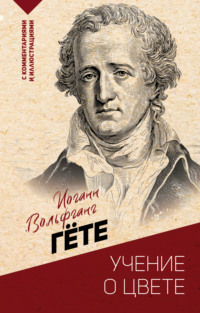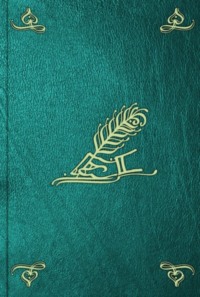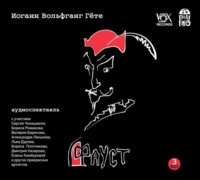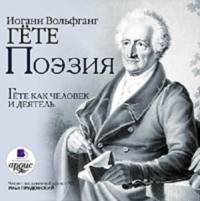 полная версия
полная версияThe Autobiography of Goethe
From this his spirit of contradiction I had much to endure; for he had resolved, partly because he wished to separate from the prince, partly on account of a complaint in his eye, to remain in Strasburg. This complaint is one of the most inconvenient and unpleasant, and the more troublesome since it can be cured only by a painful, highly irritating and uncertain operation. The tear-bag is closed below, so that the moisture contained in it cannot flow off to the nose, and so much the less as the adjacent bone is deficient in the aperture by which this secretion should naturally take place. The bottom of the tear-bag must therefore be cut open, and the bone bored through, when a horse-hair is drawn through the lachrymal point, then down through the opened bag, and the new canal thus put into connexion with it, and this hair is moved backwards and forwards every day, in order to restore the communication between the two parts; – all which cannot be done or attained, if an incision is not first made externally in that place.
Herder was now separated from the prince, was moved into lodgings of his own, and resolved to have himself operated upon by Lobstein. Here those exercises by which I had sought to blunt my sensibility did me good service; I was able to be present at the operation, and to be serviceable and helpful in many ways to so worthy a man. I found here every reason to admire his great firmness and endurance: for neither during the numerous surgical operations, nor at the oft-repeated painful dressings, did he show himself in any degree irritable, and of all of us he seemed to be the one who suffered least. But in the intervals, indeed, we had to endure the changes of his temper in many ways. I say we for besides myself, a pleasant Russian, named Peglow, was mostly with him. This man had been an early acquaintance of Herder's in Riga, and though no longer a youth, was trying to perfect himself in surgery under Lobstein's guidance. Herder could be charmingly prepossessing and brilliant, but he could just as easily turn an ill-humoured side foremost. All men, indeed, have this attraction and repulsion, according to their nature, some more, some less, some in longer, some in shorter pulsations; few can really control their peculiarities in this respect, many in appearance. As for Herder, the preponderance of his contradictory, bitter, biting humour was certainly derived from his disease and the sufferings arising from it. This case often occurs in life; one does not sufficiently take into consideration the moral effect of sickly conditions, and one therefore judges many characters very unjustly, because it is assumed that all men are healthy, and required of them that they shall conduct themselves accordingly.
Herder.
During the whole time of this cure I visited Herder morning and evening; I even remained whole days with him, and in a short time accustomed myself so much the more to his chiding and fault-finding, as I daily learned to appreciate his beautiful and great qualities, his extensive knowledge, and his profound views. The influence of this good-natured blusterer was great and important. He was five years older than myself, which in younger days makes a great difference to begin with; and as I acknowledged him for what he was, and tried to value that which he had already produced, he necessarily gained a great superiority over me. But the situation was not comfortable; for older persons, with whom I had associated hitherto, had sought to form me with indulgence, perhaps had even spoiled me by their lenity; but from Herder, behave as one might, one could never expect approval. As now, on the one side, my great affection and reverence for him, and on the other, the discontent which he excited in me, were continually at strife with each other, there arose within me an inward struggle, the first of its kind which I had experienced in my life. Since his conversations were at all times important, whether he asked, answered, or communicated his opinions in any other manner, he could not but advance me daily, nay hourly, to new views. At Leipzig, I had accustomed myself to a narrow and circumscribed existence, and my general knowledge of German literature could not be extended by my situation in Frankfort; nay, those mystico-religio-chemical occupations had led me into obscure regions, and what had been passing for some years back in the wide literary world, had for the most part remained unknown to me. Now I was at once made acquainted by Herder with all the new aspiration, and all the tendencies which it seemed to be taking. He had already made himself sufficiently known, and by his Fragments, his Kritische Wälder (Critical Woods), and other works, had immediately placed himself by the side of the most eminent men who had for a long time drawn towards them the eyes of their country. What an agitation there must have been in such a mind – what a fermentation there must have been in such a nature – can neither be conceived nor described. But great was certainly the concealed effort, as will be easily admitted, when one reflects for how many years afterwards and how much he has done and produced.
We had not lived together long in this manner when he confided to me that he meant to be a competitor for the prize which was offered, at Berlin, for the best treatise on the origin of language. His work was already nearly completed, and, as he wrote a very neat hand, he could soon communicate to me, in parts, a legible manuscript. I had never reflected on such subjects, for I was yet too deeply involved in the midst of things to have thought about their beginning and end. The question, too, seemed to me in some measure an idle one; for if God had created man as man, language was just as innate in him as walking erect; he must have just as well perceived that he could sing with his throat, and modify the tones in various ways with tongue, palate, and lips, as he must have remarked that he could walk and take hold of things. If man was of divine origin, so was also language itself; and if man, considered in the circle of nature, was a natural being, language was likewise natural. These two things, like soul and body, I could never separate. Süssmilch, with a realism crude yet somewhat fantastically devised, had declared himself for the divine origin, that is, that God had played the schoolmaster to the first men. Herder's treatise went to show that man as man could and must have attained to language by his own powers. I read the treatise with much pleasure, and it was of special aid in strengthening my mind; only I did not stand high enough either in knowledge or thought to form a solid judgment upon it. I therefore gave the author my applause, adding only a few remarks which flowed from my way of viewing the subject. But one was received just like the other; there was scolding and blaming, whether one agreed with him conditionally or unconditionally. The fat surgeon had less patience than I; he humorously declined the communication of this prize-essay, and affirmed that he was not prepared to meditate on such abstract topics. He urged us in preference to a game of ombre, which we commonly played together in the evening.
Herder's Sarcasms.
During so troublesome and painful a cure, Herder lost nothing of his vivacity; but it became less and less amiable. He could not write a note to ask for anything, that would not be spiced with some scoff or other. Once, for instance, he wrote to me thus: —
"If those letters of Brutus thou hast in thy Cicero's letters,Thou, whom consolers of schools, deck'd out in magnificent bindings,Soothe from their well plan'd shelves – yet more by the outside thaninside,Thou, who from gods art descended, or Goths, or from origin filthy,37Goethe, send them to me."It was not polite, indeed, that he should allow himself this jest on my name; for a man's name is not like a mantle, which merely hangs about him, and which, perchance, may be safely twitched and pulled; but is a perfectly fitting garment, which has grown over and over him like his very skin, at which one cannot scratch and scrape without wounding the man himself.
The first reproach, on the contrary, was better founded. I had brought with me to Strasburg the authors I had obtained, by exchange, from Langer, with various fine editions from my father's collection besides, and had set them up on a neat book-case, with the best intentions of using them. But how should my time, which I split up into an hundred different activities, suffice for that? Herder, who was most attentive to books, since he had need of them every moment, perceived my fine collection at his first visit, but soon saw, too, that I made no use of them. He, therefore, as the greatest enemy to all false appearances and ostentation, was accustomed, on occasion, to rally me upon the subject.
Another sarcastic poem occurs to me, which he sent me one evening, when I had been telling him a great deal about the Dresden gallery. I had, indeed, not penetrated into the higher meaning of the Italian school; but Dominico Feti, an excellent artist, although a humorist, and therefore not of the first rank, had interested me much. Scripture subjects had to be painted. He confined himself to the New Testament parables, and was fond of representing them with much originality, taste, and good-humour. He brought them altogether into every-day life, and the spirited and naïve details of his compositions, recommended by a free pencil, had made a vivid impression upon me. At this, my childish enthusiasm for art, Herder sneered in the following fashion: —
"From sympathy,The master I like best of allDominico Feti they call.A parable from Scripture he is ableNeatly to turn into a crazy fableFrom sympathy: – thou crazy parable!"I could mention many jokes of the kind, more or less clear or abstruse, cheerful or bitter. They did not vex me, but made me feel uncomfortable. Yet since I knew how to value highly everything that contributed to my own cultivation, and as I had often given up former opinions and inclinations, I soon accommodated myself, and only sought, as far as it was possible for me from my point of view, to distinguish just blame from unjust invectives. And thus no day passed over that had not been, in the most fruitful manner, instructive to me.
I was made acquainted by him with poetry from quite a different side, in another light than heretofore, and one, too, which suited me well. The poetic art of the Hebrews, which he treated ingeniously after his predecessor Lowth – popular poetry, the traditions of which in Alsace he urged us to search after; and the oldest records existing as poetry – all bore witness that poetry in general was a gift to the world and to nations, and not the private inheritance of a few refined, cultivated men. I swallowed all this, and the more eager I was in receiving, the more liberal was he in giving, so that we spent the most interesting hours together. The other natural studies which I had begun, I endeavoured to continue, and as one always has time enough, if one will apply it well, so amongst them all I succeeded in doing twice or thrice as much as usual. As to the fulness of those few weeks during which we lived together, I can well say that all which Herder has gradually produced since, was then announced in the germ, and that I thereby fell into the fortunate condition that I could completely attach to something higher, and expand all that I had hitherto thought, learned, and made my own. Had Herder been methodical, I should have found the most precious guide for giving a durable tendency to my cultivation; but he was more inclined to examine and stimulate, than to lead and conduct. Thus he at first made me acquainted with Hamann's writings, upon which he set a very great value. But instead of instructing me as to these, and making the bias and drift of his extraordinary mind intelligible to me, it generally only served him for amusement when I behaved strangely enough, in trying to get at the meaning of such sibylline leaves. However, I could well feel that something in Hamann's writings appealed to me; and to this I gave myself up, without knowing whence it came or whither it was leading me.
Herder's Departure.
After the cure had lasted longer than was reasonable, Lobstein had begun to hesitate, and to repeat himself in his treatment, so that the affair would not come to an end; and Peglow, too, had confided to me in private that a favourable issue was hardly to be expected; the whole position became gloomy; Herder became impatient and out of temper, he could not succeed in continuing his activity as heretofore, and was obliged to restrain himself the more, as they began to lay the blame of the surgical failure upon his too great mental exertion, and his uninterrupted, animated, nay, merry intercourse with us. It is sufficient to say, that after so much trouble and suffering, the artificial tear-channel would not form itself, and the communication intended would not take place. It was necessary to let the wound heal over in order that the disease should not become worse. If, now, during the operation, one could but admire Herder's firmness under such pains, his melancholy and even fierce resignation to the idea that he must bear such a blot about him all his life, had about it something truly sublime, by which he gained for ever the reverence of those who saw and loved him. This disease, which disfigured so expressive a countenance, must have been so much the more afflicting to him, as he had become acquainted with an excellent lady in Darmstadt, and had gained her affections. It may have been for this cause principally that he submitted to the cure, in order, on his return, to appear more free, more cheerful, and more handsome in the eyes of his half-betrothed, and to unite himself more certainly and indissolubly with her. However, he hastened away from Strasburg as soon as possible, and since his stay had hitherto been as expensive as it was unpleasant, I borrowed a sum of money for him, which he promised to refund by an appointed day. The time passed without the arrival of the money. My creditor, indeed, did not dun me; but I was for several weeks in embarrassment. At last the letter and the money came, and even here he did not act unlike himself; for, instead of thanks or an apology, his letter contained nothing but satirical things in doggerel verse, which would have puzzled, if not alienated, another; but it did not move me at all, for I had conceived so great and powerful an idea of his worth that it absorbed everything of an opposite nature which could have injured it.
One should never speak, publicly at least, of one's own faults, or those of others, if one does not hope to effect some useful purpose by it; on this account I will here insert certain remarks which force themselves upon me.
Gratitude and ingratitude belong to those events which appear every moment in the moral world, and about which men can never agree among themselves. I usually distinguish between non-thankfulness, ingratitude, and aversion from gratitude. The first is innate with men, nay, created with them; for it arises from a happy volatile forgetfulness of the repulsive as well as of the delightful, by which alone the continuation of life is possible. Man needs such an infinite quantity of previous and concurrent assistances for a tolerable existence, that if he would always pay to the sun and the earth, to God and nature, to ancestors and parents, to friends and companions, the thanks due to them, he would have neither time nor feeling left to receive and enjoy new benefits. But if the natural man suffers this volatility to get the control in and over him, a cold indifference gains more and more the ascendancy, and one at last regards one's benefactor as a stranger, to whose injury, perhaps, anything may be undertaken, provided it be advantageous to ourselves. This alone can properly be called ingratitude, which results from the rudeness into which the uncultivated nature must necessarily lose itself at last. Aversion from gratitude, however, the rewarding of a benefit by ill-natured and sullen conduct, is very rare, and occurs only in eminent men, such as, with great natural gifts, and a presentiment of them, being born in a lower rank of society or in a helpless condition, must, from their youth upwards, force themselves along, step by step, and receive, at every point, aids and supports, which are often embittered and repulsive to them through the coarseness of their benefactors, since that which they receive is earthly, while that which, on the other hand, they give, is of a higher kind, so that what is, strictly speaking, a compensation, is out of the question. Lessing, with the fine knowledge of earthly things which fell to his share in the best years of his life, has in one place bluntly, but cheerfully expressed himself. Herder, on the contrary, constantly embittered his finest days, both for himself and others, because he knew not how to moderate, by strength of mind in later years, that ill-humour which had necessarily seized him in youth.
Artificial Gratitude.
One may well make this demand of oneself: for, to a man's capability of cultivation, comes, with friendly aid, the light of nature, which is always active in enlightening him about his condition; and generally, in many moral points of culture, one should not construe the failings too severely, nor look about after the most serious and remote means of correcting them; for certain faults may be easily and even playfully removed. Thus, for instance, by mere habit, we can excite gratitude in ourselves, keep it alive, and even make it necessary to us.
In a biographical attempt, it is proper to speak of oneself. I am, by nature, as little grateful as any man, and on forgetting the benefit received, the violent feeling of a momentary disagreement could very easily beguile me into ingratitude.
To obviate this, I accustomed myself, in the first place, with everything that I possessed, to call to mind with pleasure how I came by it, from whom I received it, whether it was by way of present, exchange, or purchase, or in any other manner. I have accustomed myself, in showing my collections, to mention the persons by whose means I obtained each article, nay, even to do justice to the occasion, to the accident, to the remotest cause and coincidence, by which things which are dear and of value to me have become mine. That which surrounds us thus receives a life; we see in it a spiritual combination, full of love, reminding us of its origin; and, by thus making past circumstances present to us, our momentary existence is elevated and enriched, the originators of the gifts rise repeatedly before the imagination, we connect with their image a pleasing remembrance, ingratitude becomes impossible, and a return, on occasion, becomes easy and desirable. At the same time, we are led to the consideration of that which is not a possession palpable to the senses, and we love to recapitulate to whom our higher endowments are to be ascribed, and whence they take their date.
Before I turn my attention from that connexion with Herder, which was so important and so rich in consequences for me, I find yet something more to adduce. Nothing was more natural than that I should by degrees become more and more reserved towards Herder, in communicating those things which had hitherto contributed to my culture, but especially such as still seriously occupied my attention at the moment. He had destroyed my enjoyment of so much that I had loved before, and had especially blamed me in the strongest manner for the pleasure I took in Ovid's Metamorphoses. I might defend my favourite as I would, I might say that, for a youthful fancy, nothing could be more delightful than to linger in those cheerful and glorious regions with gods and demi-gods, and to be a witness of their deeds and passions; I might circumstantially quote that previously mentioned opinion of a sober-minded man, and corroborate it by my own experience; all this, according to Herder, went for nothing; there was no immediate truth, properly so called, to be found in these poems; here was neither Greece nor Italy, neither a primitive world nor a cultivated one, everything was rather an imitation of what had already existed, and a mannerised representation, such as could be expected only from an over-cultivated man. And if at last I would maintain, that whatever an eminent individual produces is also nature, and that always, in all nations, ancient and modern, the poet alone has been the maker; this was not allowed to pass, and I had to endure much on this account, nay, I was almost disgusted with my Ovid by it; for there is no affection, no habit so strong, that it can hold out in the long run against the animadversions of eminent men in whom one places confidence. Something always cleaves to us, and if one cannot love unconditionally, love is already in a critical condition.
I most carefully concealed from him my interest in certain subjects which had rooted themselves within me, and were, by little and little, moulding themselves into poetic form. These were Götz von Berlichingen and Faust. The biography of the former had seized my inmost heart. The figure of a rude, well-meaning self-helper, in a wild anarchical time, awakened my deepest sympathy. The significant puppet-show fable of the latter resounded and vibrated many-toned within me. I had also wandered about in all sorts of science, and had early enough been led to see its vanity. I had, moreover, tried all sorts of ways in real life, and had always returned more unsatisfied and troubled. Now these things, as well as many others, I carried about with me, and delighted myself with them during my solitary hours, but without writing anything down. But most of all, I concealed from Herder my mystico-cabalistical chemistry, and everything relating to it, although, at the same time, I was still very fond of secretly busying myself in working it out more consistently than it had been communicated to me. Of my poetical labours, I believe I laid before him Die Mitschuldigen, but I do not recollect that on this account I received either correction or encouragement on his part. Yet, with all this, he remained what he was; whatever proceeded from him had an important, if not a cheering effect, and even his handwriting exercised a magic power over me. I do not remember having ever torn up or thrown away one of his letters, or even a mere envelope from his hand; yet, with my various changes of place and time, not one document of those strange, foreboding, and happy days is left.
Herder's Influence on Jung.
That Herder's power of attraction operated upon others as well as upon me, I should scarcely mention, had I not to remark that it extended itself particularly to Jung, commonly called Stilling. The true, honest striving of this man could not but deeply interest everybody who had any feeling, and his susceptibility must have charmed into candour every one who was in a condition to impart anything. Even Herder behaved towards him with more forbearance than towards the rest of us: for his counter-action always seemed to stand in relation with the action exerted upon him. Jung's narrowness was accompanied by so much good-will, his urgency with so much softness and earnestness, that a man of intelligence could certainly not be severe against him, and a benevolent man could not scoff at him, or turn him into ridicule. Jung was also exhilarated to such a degree by Herder, that he felt himself strengthened and advanced in all he did; even his affection for me seemed to lose ground in the same ratio; yet we always remained good companions, made allowances for each other from first to last, and mutually rendered the most friendly services.
Let us now, however, withdraw ourselves from the sick chamber of friendship, and from the general considerations which refer rather to disorder than to health of mind; let us betake ourselves into the open air, to the lofty and broad gallery of the minster, as if the time were still present, when we young fellows often appointed an evening meeting to greet the departing sun with brimming goblets. Here all conversation was lost in the contemplation of the country: here sharpness of eye-sight was put to the proof, and every one strove to perceive, nay, plainly to distinguish, the most distant objects. Good telescopes were employed to assist us, and one friend after another exactly pointed out the spot which had become the most dear and precious to him; and I also did not lack such a little spot, which, although it did not come out with importance in the landscape, nevertheless more than all the rest attracted me with an amiable magic. On these occasions the imagination was excited by relating our adventures, and several little jaunts were concerted, nay, often undertaken on the spur of the moment, of which I will circumstantially relate only one instead of a number, since in many respects it was of consequence to me.









